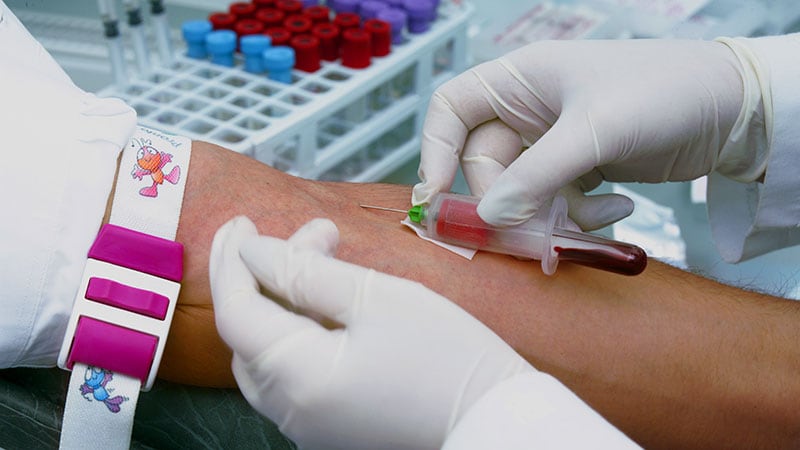Medicare Covers PrismRA Blood Test for RA Treatment Response Prediction
Core Concepts
Medicare now covers PrismRA blood test for predicting treatment response in rheumatoid arthritis patients.
Abstract
The Medicare coverage of the PrismRA blood test for predicting treatment response in rheumatoid arthritis patients marks a significant advancement in precision medicine for autoimmune diseases. The content discusses the test's availability, cost, initial coverage denial by Palmetto GBA, and subsequent revision due to clinician feedback. It highlights the importance of predictive biomarker tests in guiding treatment decisions for RA patients.
Customize Summary
Rewrite with AI
Generate Citations
Translate Source
To Another Language
Generate MindMap
from source content
Visit Source
www.medscape.com
Precision Blood Test PrismRA Receives Medicare Coverage
Stats
The PrismRA test costs about $5,000, but most patients with insurance coverage pay less than $75 out-of-pocket after insurance.
Nearly 90% of patients with a nonresponse (NR) signature from the MSRC will not clinically respond to TNFi therapies.
Quotes
"Precision medicine will now be accessible to many patients suffering from RA, a potentially debilitating disease if not treated with the right therapy." - Alif Saleh
Key Insights Distilled From
by Lucy Hicks at www.medscape.com 09-07-2023
https://www.medscape.com/viewarticle/996196
Deeper Inquiries
How can the coverage of the PrismRA test impact the overall management of rheumatoid arthritis patients?
The coverage of the PrismRA test by Medicare can significantly impact the overall management of rheumatoid arthritis (RA) patients by providing personalized treatment options based on predictive biomarker testing. This test can help identify patients who are unlikely to respond to tumor necrosis factor inhibitor (TNFi) therapy, allowing healthcare providers to make more informed decisions regarding the choice of biologic or targeted synthetic therapy. By incorporating the PrismRA test into clinical practice, physicians can tailor treatment plans to individual patients, potentially leading to improved outcomes, reduced disease progression, and better quality of life for RA patients.
What are the potential drawbacks or limitations of relying on predictive biomarker tests for treatment decisions?
While predictive biomarker tests like PrismRA can offer valuable insights into treatment response prediction, there are several drawbacks and limitations to consider. One limitation is the cost associated with these tests, which may not be affordable for all patients or healthcare systems. Additionally, biomarker tests may not always provide definitive results and can have varying levels of accuracy, leading to potential misinterpretation or misclassification of patients. Furthermore, the reliance on biomarker tests alone may overlook other important clinical factors that could influence treatment decisions, such as disease severity, comorbidities, or patient preferences. It is essential to use predictive biomarker tests as part of a comprehensive approach to treatment decision-making, considering all available clinical and laboratory data to ensure the most appropriate care for each patient.
How might the integration of precision medicine in autoimmune diseases influence healthcare policies and practices in the future?
The integration of precision medicine in autoimmune diseases, exemplified by the coverage of the PrismRA test by Medicare, has the potential to influence healthcare policies and practices in several ways. Firstly, it may lead to a shift towards more personalized and targeted therapies, moving away from a one-size-fits-all approach to treatment. This could result in improved patient outcomes, reduced healthcare costs, and enhanced patient satisfaction. Additionally, the adoption of precision medicine in autoimmune diseases may prompt changes in reimbursement policies, with payers recognizing the value of predictive biomarker tests and supporting their use in clinical practice. Healthcare providers may also need to undergo training and education to effectively incorporate precision medicine tools into their decision-making processes, ensuring optimal patient care and treatment outcomes in the future.
0
